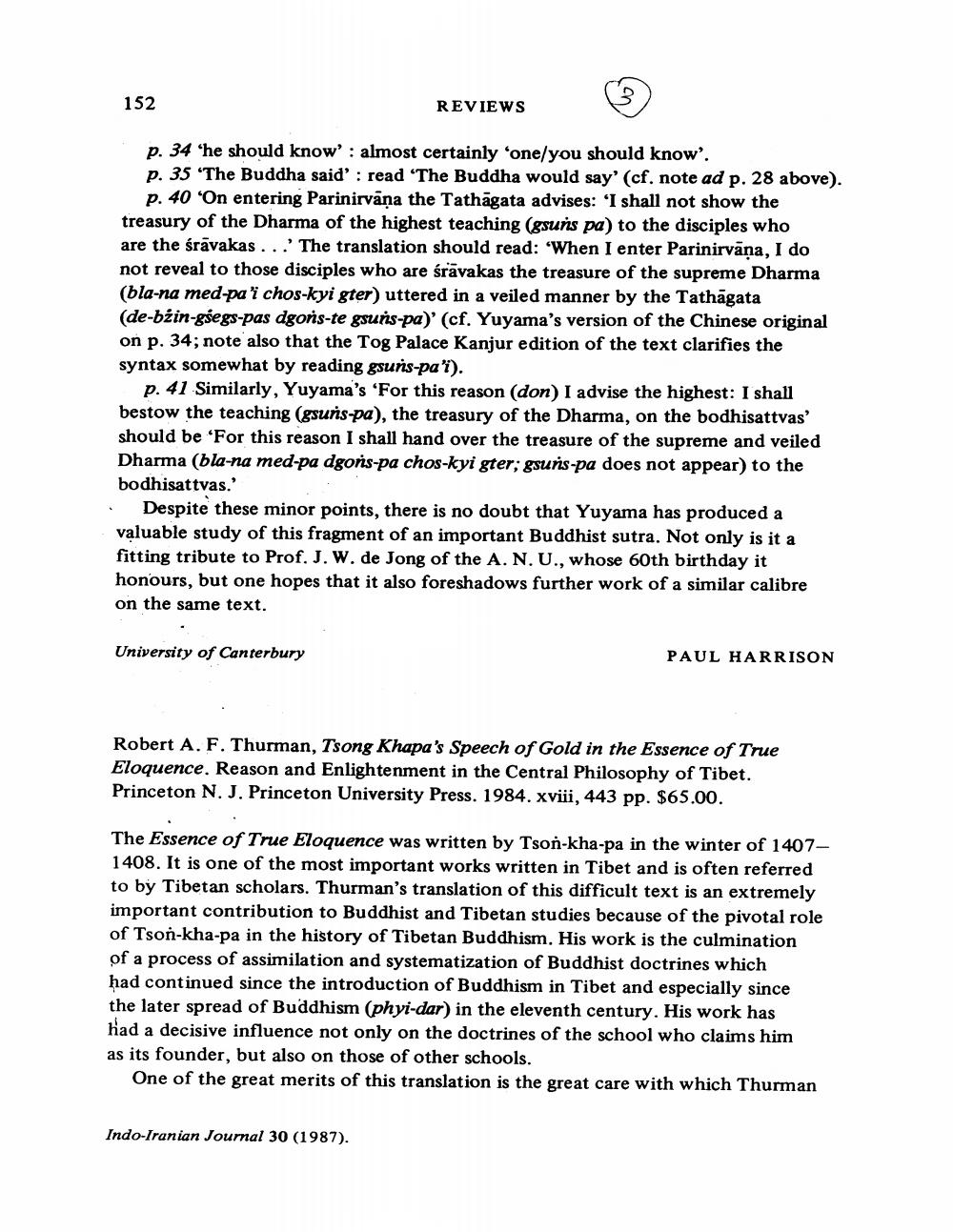Book Title: Book Reviews Author(s): J W De Jong Publisher: J W De Jong View full book textPage 1
________________ 152 REVIEWS p. 34 'he should know': almost certainly 'one/you should know'. p. 35 'The Buddha said': read 'The Buddha would say' (cf. note ad p. 28 above). P. 40 "On entering Parinirvana the Tathāgata advises: 'I shall not show the treasury of the Dharma of the highest teaching (gsuns pa) to the disciples who are the śrāvakas ...' The translation should read: 'When I enter Parinirvana, I do not reveal to those disciples who are śrävakas the treasure of the supreme Dharma (bla-na med-pa'i chos-kyi gter) uttered in a veiled manner by the Tathāgata (de-bżin-gšegs-pas dgons-te gsuns-pa)' (cf. Yuyama's version of the Chinese original on p. 34; note also that the Tog Palace Kanjur edition of the text clarifies the syntax somewhat by reading gsuns-pa'i). p. 41 Similarly, Yuyama's 'For this reason (don) I advise the highest: I shall bestow the teaching (gsuns-pa), the treasury of the Dharma, on the bodhisattvas' should be 'For this reason I shall hand over the treasure of the supreme and veiled Dharma (bla-na med-pa dgoris-pa chos-kyi gter; gsuns-pa does not appear) to the bodhisattvas.' • Despite these minor points, there is no doubt that Yuyama has produced a valuable study of this fragment of an important Buddhist sutra. Not only is it a fitting tribute to Prof. J. W. de Jong of the A. N. U., whose 60th birthday it honours, but one hopes that it also foreshadows further work of a similar calibre on the same text. University of Canterbury PAUL HARRISON Robert A. F. Thurman, Tsong Khapa's Speech of Gold in the Essence of True Eloquence. Reason and Enlightenment in the Central Philosophy of Tibet. Princeton N. J. Princeton University Press. 1984. xviii, 443 pp. $65.00. The Essence of True Eloquence was written by Tson-kha-pa in the winter of 14071408. It is one of the most important works written in Tibet and is often referred to by Tibetan scholars. Thurman's translation of this difficult text is an extremely important contribution to Buddhist and Tibetan studies because of the pivotal role of Tson-kha-pa in the history of Tibetan Buddhism. His work is the culmination of a process of assimilation and systematization of Buddhist doctrines which had continued since the introduction of Buddhism in Tibet and especially since the later spread of Buddhism (phyi-dar) in the eleventh century. His work has had a decisive influence not only on the doctrines of the school who claims him as its founder, but also on those of other schools. One of the great merits of this translation is the great care with which Thurman Indo-Iranian Journal 30 (1987).Page Navigation
1 2 3 4 5 6
